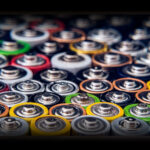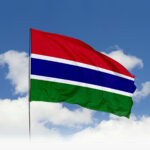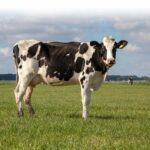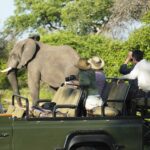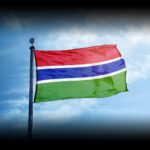Independence Day in the Gambia is an annual observance holiday that happens on February 18 in the Gambia to mark the beginning of self-rule and sovereignty from Britain in 1965. The country’s position at the westernmost edge of the continent and on the cusp of the Atlantic ocean that supplies the river that runs through the middle of the country makes Gambia one of the continent’s top places to visit. Did you know that the Gambia is one of only two countries whose short name should always begin with the word “The” (the other one being The Bahamas) formally? Well, now you know!
History of Independence Day Gambia
Independence Day is an annual celebration that marks the start of the Gambian self-governance and absolute sovereignty from Britain in 1965. Located on the west coast of Africa, Gambia is the smallest country in mainland Africa. It is positioned between and completely bordered by Senegal in its northern, southern, and eastern parts winning it the title of being one of the narrowest countries in the world. The country is parted by a river named after it that runs through its middle and is fed by waters from the Atlantic ocean.Gambia’s first contact with Europeans was in the mid-15th century when Portuguese explorers became the first to arrive in the country as part of their expansion of overseas trade, which then saw the Gambia become an important location for the African slave trade. The Portuguese sold their trade rights in the region to the British at the end of the 16th century, kickstarting a period of British control of the region till its movement for independence which started in the 1950s.During the 1950s political parties began to emerge in preparation for the shift in the control of the country initiated by Queen Elizabeth II, and eventually, in the 1960s, elections were held with the leader of “People’s Progressive Party,” David Jawara, emerging as the country’s prime minister and eventual first president. Independence Day celebrations in the Gambia often include parades and several other processions that usually take place at McCarthy Square in the country’s capital Banjul. Similar festivities are expected in urban centers across the country.
Independence Day Gambia timeline
Prime Minister Dawda Jawara writes to the Permanent Committee on Geographical Names for British Official Use that the country’s name retains ‘The’ as a prefix to distinguish itself from a recently sovereign Zambia.
The Gambia achieves independence and becomes a constitutional monarchy.
The country retains the name “The Gambia” after gaining independence in 1965 but changes to “The Republic of Gambia” after its proclamation as a republic.
A failed coup attempt gets organized by leaders of the opposition party in the country while the president, Jawara, visits London.
Independence Day Gambia FAQs
How did the Gambia gain independence?
The Gambia gained independence from Britain in 1965, under the leadership of Dawda Jawara, who ruled until Yahya Jammeh seized power in a bloodless 1994 coup. The country’s independence was granted by Elizabeth II who also served as the Queen of the Gambia, represented by a Governor-General whom the country’s prime minister and eventual first president, Dawda Jawara, reports to.
Is Gambia a poor country?
Compared to most countries in West Africa and Africa at large, Gambia is a relatively stable yet economically poor country on the continent. It also ranks among the poorest countries in the world with a gross national income (G.N.I.) per capita of less than $1,500.
What language do Gambians speak?
English. The Gambia is a former British Colony hence its official language is English. Although there are several tribal languages spoken together with English in the country, visitors never have to worry because most Gambians are at least bilingual
How to Observe Independence Day Gambia
-
Visit the Gambia
Its position at the westernmost edge of the continent and on the cusp of the Atlantic ocean that supplies the river that runs through the country’s middle makes Gambia one of the continent's places to visit together with its diverse ethnic groups. To celebrate its independence day, visit Banjul, the country’s capital to witness the Independence Day procession.
-
Learn about the country
The Gambia’s statehood is young but its history can be traced as far back as the 11th century and the Malian Empire. The country sits just as a narrow strip on either side of the River Gambia, a body of water that has played a vital part in the nation's destiny and is commonly known simply as “The River” by locals. Take time out to learn about the country to celebrate its Independence Day.
-
Share thoughts on social media
Share your thoughts on the tiny African nation on social media. Help people discover the beauty of the country and drive tourists to its breathtaking landscape. Use the hashtag #GambiaIndependenceDay.
5 Things You Didn’t Know About Gambia
-
Gambia’s population
Gambia’s population was less than 400,000 people at independence.
-
It went through name changes twice
The administration of the country’s second president, Yahya Jammeh, changed the long-form name of the country before its third president changed it back.
-
Boris Johnson visits the Gambia
Boris Johnson, became the first British Foreign Secretary to visit the Gambia since it gained independence in 1965.
-
The treaty with Senegal
After the 1981 attempted coup, Senegal and Gambia signed a treaty to combine the armed forces of the two states and unify their economies and currencies; the agreement lasted only seven years before the Gambia permanently withdrew from it in 1989.
-
Inaugurated at the Gambian embassy in Senegal
Barrow won the 2016 presidential election with 43.34% of the vote, defeating long-time incumbent Jammeh who initially refused to step down, forcing Barrow to flee neighboring Senegal.
Why Independence Day Gambia is Important
-
It strengthens our belief in democracy
As a country that has gone through government changes by the means of coups and foreign military interventions, Independence Day represents a reminder of the importance of our continual commitment to the democratic principle of a free and fair election. It strengthens the beliefs of Gambians in the institutions of government and democratic processes.
-
It reminds us how far we’ve come
Independence Day serves as a day to reflect on how far the Gambia has come. From the declaration of the republic in 1970 to the first transition of power to a civilian in 2016 — the presidential election was won by Adama Barrow. Independence Day is a reminder of our progress as a democratic country.
-
It inspires us for the future
Perhaps the most genuine reason why Independence Day is important is that it inspires and recommits us to a better Gambia. The holiday motivates and helps us stay focused on the bigger picture.
Independence Day Gambia dates
| Year | Date | Day |
|---|---|---|
| 2023 | February 18 | Saturday |
| 2024 | February 18 | Sunday |
| 2025 | February 18 | Tuesday |
| 2026 | February 18 | Wednesday |
| 2027 | February 18 | Thursday |





